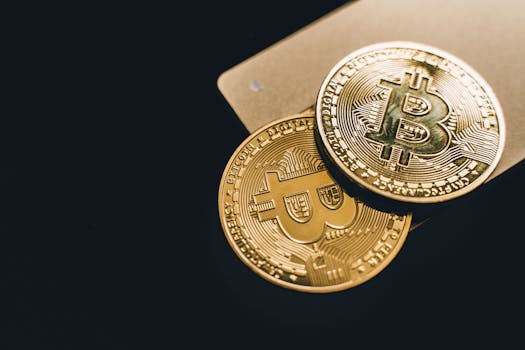
**
Life insurers in India are increasingly looking to diversify their investment portfolios, with a significant focus on gold. Driven by the inherent stability and perceived safe-haven status of gold, especially amidst global economic uncertainty, several leading players in the life insurance sector are seeking approval from the Insurance Regulatory and Development Authority of India (IRDAI) to invest in Gold Exchange Traded Funds (Gold ETFs). This strategic move has the potential to reshape the investment landscape for the industry and offers exciting implications for both insurers and policyholders.
The Allure of Gold ETFs for Life Insurers
Gold has long been considered a safe haven asset, demonstrating resilience during market downturns. Its value tends to be negatively correlated with other asset classes, making it an effective diversifier within a portfolio. This is particularly appealing to life insurers who are entrusted with managing massive investment pools for long-term liabilities like life insurance policies. Investing in Gold ETFs provides several advantages:
- Liquidity: Gold ETFs offer greater liquidity compared to physical gold, enabling insurers to easily buy and sell investments to meet their operational needs and adjust their portfolios as market conditions change.
- Transparency: ETFs provide complete transparency regarding holdings, making it easier for insurers to monitor and manage their investments.
- Cost-Effectiveness: Gold ETFs generally incur lower storage and management costs compared to physical gold holdings, improving overall returns.
- Diversification: The inclusion of gold ETFs can significantly diversify the insurer's investment portfolio, reducing overall risk.
- Hedge against inflation: Gold is often seen as a hedge against inflation, making it a valuable asset in times of economic uncertainty.
Current Investment Regulations and the IRDAI's Role
Currently, the IRDAI regulates the investment strategies of life insurance companies, outlining permissible asset classes and investment limits. While insurers are allowed to invest in several asset classes, including government securities, corporate bonds, and equities, specific regulations concerning Gold ETF investments remain under review. The applications for increased investment in Gold ETFs represent a significant push for regulatory adjustments to accommodate this growing desire for diversification. The IRDAI's decision will be crucial in shaping the future investment strategies of life insurance companies in India.
Implications of Increased Gold ETF Investments
The potential approval of increased Gold ETF investments could have far-reaching consequences:
- Enhanced Portfolio Stability: The inclusion of gold in their portfolios will potentially enhance the stability of life insurance company investments, offering better risk mitigation. This translates to improved long-term returns and potentially greater financial security for policyholders.
- Increased Returns (Potentially): Strategic allocation to Gold ETFs could boost overall portfolio returns, particularly during periods of market volatility. However, it's crucial to understand that gold prices fluctuate, and returns are not guaranteed.
- Attracting Investors: The move could enhance the attractiveness of life insurance products for investors seeking diversification and stability.
- Increased Competition: This shift could intensify competition among life insurers, driving innovation and potentially leading to better products and services for customers.
Challenges and Considerations
While the prospect of investing in Gold ETFs seems promising, certain challenges need to be addressed:
- Regulatory hurdles: Securing IRDAI approval is paramount. The regulatory process can be lengthy and involves demonstrating compliance with various norms and guidelines.
- Market volatility: Gold prices, while generally stable, are still subject to market fluctuations. Insurers need to carefully manage their exposure to minimize potential losses.
- Valuation challenges: Accurate and timely valuation of Gold ETF holdings is crucial for effective portfolio management.
- Operational complexities: Integrating Gold ETF investments into existing portfolio management systems could require significant technological and operational adjustments.
The Future of Life Insurance Investments in India
The move by life insurers to seek IRDAI approval for increased Gold ETF investment showcases a broader trend within the industry towards diversification and risk management. This strategic shift reflects a growing awareness of the need for portfolio resilience in an increasingly unpredictable global economic climate. The outcome of the IRDAI's review will significantly impact the investment strategies of life insurance companies and potentially pave the way for a more robust and resilient insurance sector in India.
The focus on gold investment, IRDAI regulations, Gold ETFs, and life insurance investment strategies signals a compelling shift in the Indian financial landscape. The demand for safe-haven assets, portfolio diversification, and inflation hedging is driving this change. The successful integration of Gold ETFs into life insurance portfolios could represent a significant step towards a more secure and stable future for both insurers and policyholders in India. The continued discussion surrounding investment regulations and IRDAI approvals remains critical in this evolving environment. Further updates on the IRDAI's decision are highly anticipated and will be closely followed by industry stakeholders and investors alike. This development will likely influence the trajectory of Indian financial markets and investment trends for years to come. The increased focus on alternative asset classes, like gold, points to a maturing financial sector embracing innovative strategies to manage risk and deliver long-term value.




















